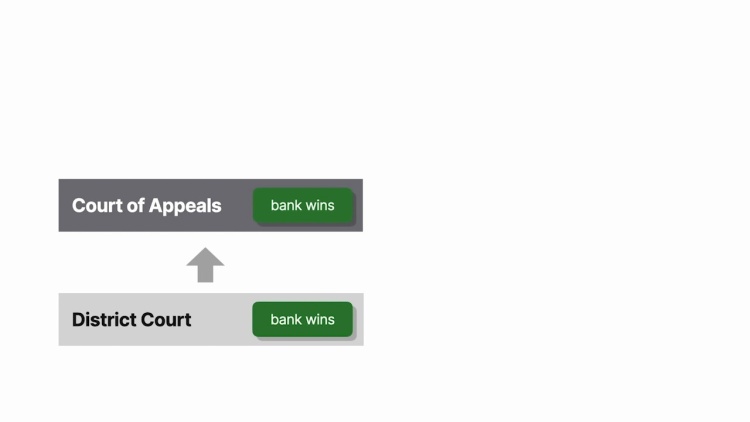Parsons Steel, Inc. v. First Alabama Bank
United States Supreme Court
474 U.S. 518, 106 S.Ct. 768, 88 L.Ed.2d 877 (1986)
- Written by Matthew Carney, JD
Facts
Parsons Steel, Inc. (plaintiff), a company owned by Jim and Melba Parsons, sued First Alabama Bank (bank) (defendant) in Alabama state court. A state court suit, filed in February 1979, alleged that the bank fraudulently induced Parsons to allow a third party to take control and eventually ownership of a subsidiary of Parsons Steel. The subsidiary eventually went bankrupt in April 1979. In May 1979, Parsons sued the bank in the United States District Court for the District of Alabama, alleging a violation of the Bank Holding Company Act. The federal case went to trial first, where the jury returned a verdict for Parsons. On a motion by the bank, however, the judge entered a judgment n.o.v. for the bank. After the conclusion of the federal case, the bank raised the defense of res judicata in the state case, arguing that the state claims could have been raised in federal court and were thus precluded from being litigated in state court. The state court rejected this argument. The state case went to trial and the jury returned a verdict for Parsons in the amount of $4 million. Following the state court verdict, the bank returned to federal court and sought an injunction against enforcement of the state verdict, arguing that res judicata prevented the entry of a verdict on the state counts. The district court agreed, holding that the state claims should have been raised with the federal claims in federal court. The district court enjoined Parsons from enforcing the verdict. Parsons appealed and the court of appeals affirmed the district court, holding that the injunction was appropriate under the “relitigation exception” to the Anti-Injunction Act. The court of appeals did not address the preclusive effect of the state courts decision denying the bank’s earlier res judicata argument. Parsons appealed.
Rule of Law
Issue
Holding and Reasoning (Rehnquist, J.)
What to do next…
Here's why 907,000 law students have relied on our case briefs:
- Written by law professors and practitioners, not other law students. 47,100 briefs, keyed to 996 casebooks. Top-notch customer support.
- The right amount of information, includes the facts, issues, rule of law, holding and reasoning, and any concurrences and dissents.
- Access in your classes, works on your mobile and tablet. Massive library of related video lessons and high quality multiple-choice questions.
- Easy to use, uniform format for every case brief. Written in plain English, not in legalese. Our briefs summarize and simplify; they don’t just repeat the court’s language.





